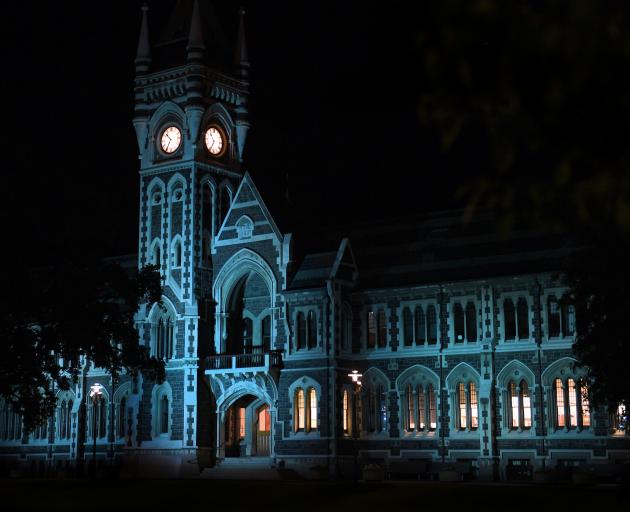
University of Otago not a singular crisis
The crisis that the University of Otago faces is not singular but common to many of our social institutions. Our hospital rebuild is symptomatic of this.
Our health system, like tertiary education and other social infrastructures, is experiencing a dysfunctional crisis. It has been building up for over a generation. It is not so much mismanagement as underfunding of our critical social infrastructure.
Since 1966 governments have been unwilling to raise the necessary revenue to keep our social democracy healthy. Since the 1980s we have been told repeatedly by governments and lobbyists that taxation is bad.
We have lost a sense that government is for the common good.
It is no surprise to find that an IRD survey reported that New Zealand's wealthiest families pay less than half the amount of tax that ordinary Kiwis pay. Super rich New Zealand families pay a median tax rate of 9.4%, compared with middle wealth New Zealanders paying 20.2%.
The answer from two of our opposition political parties is a call for more tax cuts. This may be fine for the elite, but not so good for people waiting for hip replacements or cancer treatment.
Have New Zealand governments lost a vision of the common good? We need to hold our governments and political parties accountable for the common good of all New Zealanders.
Sign of the times
Creating and giving Māori names for the University of Otago, the government departments and road signs is going too far.
For safety, road signs need to be concise and easy to read in the language common to all new New Zealanders. For government departments the main advantage seems to be to prevent the most New Zealanders finding them and communicating with them. Again a potential safety issue, especially for health services where the call response can be in Māori.
It would be very interesting if the University of Otago released its recent survey showing the response to their proposed name and logo change. This would provide some feedback on the popularity of Māori labelling.
Heartily fed-up
If most New Zealanders feel the same way I do, they are getting heartily fed-up with hearing how poorly paid are our nurses and teachers and public service employees. Like me they will also agree that they are undoubtedly entitled to large wage increases and should not have to fight the government to get them.
This reluctance to pay teachers in particular, their true worth, has been going on since the 1970s. The current adversarial system causes nothing but pain and heartache for teachers and nurses alike, meaning they must bargain with their government ministry for any pay increases. Members of Parliament, on the other hand, never have to bother themselves about their bloated salaries keeping pace with inflation.
They have in the distant past, very cleverly created the Parliamentary Remuneration Authority, whose sole job is to make sure that MPs do not have to ask for more pay. They are automatically given cost of living pay rises on a regular basis.
The system needs to change. Show our teachers and nurses the same courtesy. Give them an independent remuneration authority and automatic pay increases and show them the respect they deserve.
Teaching right and wrong a responsibility for all
I was disappointed to read Julian Faigan’s letter (ODT 27.5.23).
I strongly feel that it is not the government’s responsibility to instil the concept of right and wrong into society.
Instead it is the responsibility of us all and especially those of us who are parents and caregivers.
There would be far fewer ram-raids if there was no market for things that "fell off the back of the truck".
We, as a society, decide the rules which we think are good ones to live by.
We then need to instil into our young people respect for these rules and the people to whom we designate enforcement of them.
This is has to be done not by only word but by deed and example.
From telling the cashier they have given you too much change, by making sure you always cross at pedestrian crossings and not jaywalk, to not committing burglary or ram-raids or drinking and driving.
My philosophy has always been that we have rules to protect us and therefore one should not speed just because you might get a ticket, but because there may be children running out on to the road after a ball or some other reason that could harm someone. This also involves us teaching that other people and their belongings should be respected.
In the end there is no victimless crime whatever people might try to say.
Theft increases insurance premiums which affects us all and definitely destroys victim’s sense of wellbeing and peace.
Likewise bullying causes huge harm at every level and bullying is not respecting the individual.
Yes the government organises administration of justice (or more accurately the rule of law) but we as a society have the larger part to play and we are not doing it.
Address Letters to the Editor to: Otago Daily Times, PO Box 517, 52-56 Lower Stuart St, Dunedin. Email: editor@odt.co.nz












